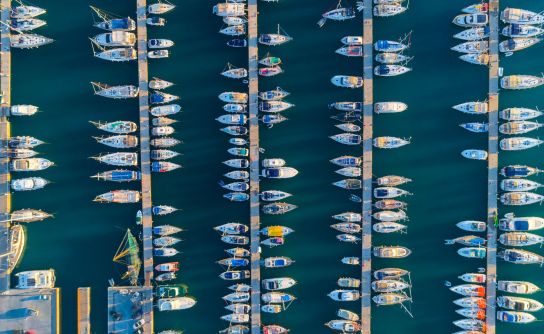7 May 2025
The Blue Boat Horizon project is now reaching the end of the first phase of its development. The project was originally started by the European Boating Industry before being joined by ICOMIA and the NMMA.
The project, in active development for over a year, aims to develop a Product Environmental Footprint (PEF) Life Cycle Assessment, recognized by the European Union. This initiative supports the boating industry's shift towards sustainability, aligning with emerging regulations like the Green Claims Directive (GCD) and contributing to broader national and international environmental goals, with the ultimate objective of the project being to establish official Product Environmental Footprint Category Rules (PEFCR) recognised internationally that will help businesses meet the ever-expanding range of national environmental regulations.
Of the various foundational services that the international marine industry needs to develop, in order to be able to continue to operate in a society that is moving towards a more environmentally sustainable future, having a single internationally recognised Lifecycle Assessment (LCA) Framework is a fundamental need. With governments around the world looking at how to enable consumers to make more environmental choices, and forcing businesses to be more environmentally conscientious, new regulations are being discussed and coming into force placing greater burdens on businesses, both costs and resource requirements, as an industry whilst recognising the need to meet these challenges, we must ensure our businesses can continue to operate successfully under these new pressures.
Having a single agreed, acceptable method for businesses to calculate carbon and carbon equivalent emissions in order to meet these various new regulations will save the sector a considerable amount, if different countries (markets) each have their own means of calculating lifecycle carbon emissions the compliance costs to businesses could be crippling.
The Life Cycle Assessment process developed gives businesses the opportunity to follow a comprehensive approach to evaluating the environmental impact of recreational boats, offering a multi-criteria analysis going beyond just greenhouse gas and tailpipe emissions to include impacts like energy use, waste, material resources, land use, and both freshwater and marine pollution. The methodology developed by the BBH project is practical, scalable, and tailored to be accessible for all industry stakeholders across the supply chain, including SMEs.
Seventeen major boat yards and twelve National Marine Industry Associations along with industry stakeholders, LCA experts, legal experts and supply chain representatives have taken part, giving over 2000 hours of development support in phase one, the initial development of the life-cycle assessment framework.
The phase one framework will now have a final review before being released for testing and trials to project partners later this summer, the project leaders are now looking for additional stakeholders to join the project for the next phases, including the ability to take part in the trials period, British Marine will be running an online briefing in May to highlight the project, an overview of the current framework and announcing how you can get involved, if you would like to find out more information before then please contact technical@britishmarine.co.uk,
The dates of the briefing will be released in due course through the British Marine Marine Talk e-shot which you can sign up for here: British Marine
The phase 1 methodology provides a strong foundation and framework, Phase two, the global phase of the project, comes next, in cooperation with the NMMA and ICOMIA the aim will be the bringing together of an industry database and LCA tool that everyone in the sector, from small businesses to larger serial production yards, can make us of and the transition from a PEF-aligned framework to full PEFCR compliant framework recognised by the EU with continued testing and development planned to further improve and optimise the methodology.
For further information please contact technical@britishmarine.co.uk

